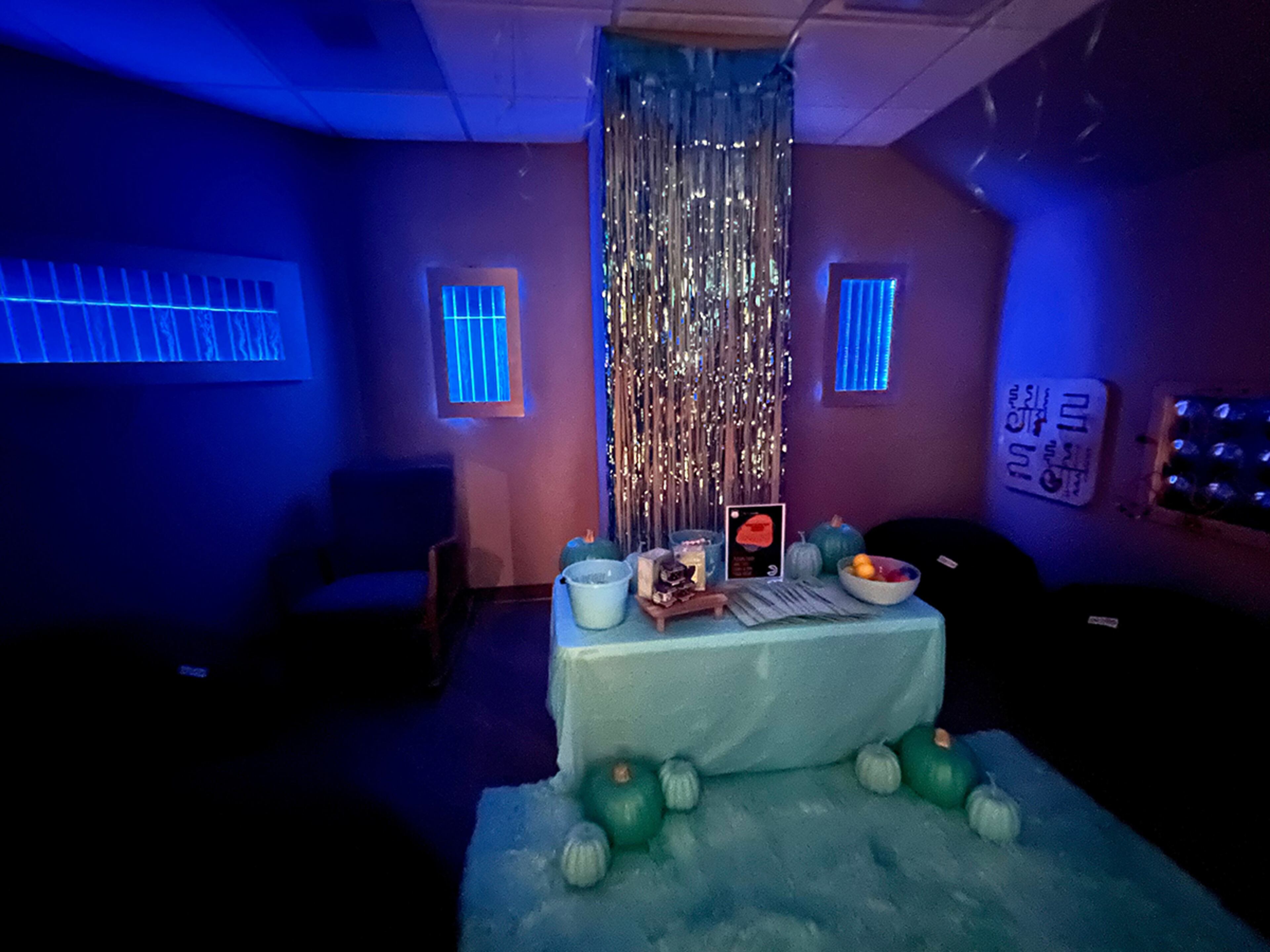Hawks add Teal Pumpkin treats to sensory inclusion room at arena
For kids with food allergies or sensory sensitivities, Halloween can be frightful in a not-so-fun way. The Atlanta Hawks and State Farm Arena are working to change that, however.
Through November 1, the arena’s sensory inclusion room — designed for anyone with sensory processing needs — will be stocked with non-candy treats for those attending the Harry Styles concerts Wednesday and Thursday, or the Hawks game against the Wizards on Monday.
This is the first year the arena has adopted the Teal Pumpkin Project, “and we anticipate this being something that we’ll do ongoing,” said Camye Mackey, the Hawks and State Farm Arena chief people, diversity and inclusion officer.
By encouraging families to offer nonfood options, like scented pencils, stickers, small toys and erasers, the Teal Pumpkin Project hopes to transform Halloween into something every child can enjoy and participate in.
“When you think about the Atlanta Hawks and State Farm Arena, we’re really committed and always looking for ways that we can foster an environment that embraces people of all communities,” Mackey continued. “This is just another way to open our doors for kids. So many children get so excited about Halloween, but then there are ones who don’t have that opportunity to really enjoy the treats.”
So, inside the sensory inclusion room this week, kids will find glow rings and puzzles, a sensory cube and sensory pin art, a teal pumpkin filled with stickers and scented pencils, a teal bowl filled with squeezable toy balls, and teal giftbags to hold all the goodies.

Although these treats are just for this week, the sensory inclusion room is open during every arena event, typically an hour before showtime. “That way, you can come in, get set up and get situated,” Mackey said.
State Farm Arena first opened its room for those with sensory sensitivities in 2017, and in 2019 was recognized by KultureCity as the Sensory Inclusive Venue of the Year. The room is next to guest services, on the 100 level between Gates 1 and 7.
KultureCity is a leading nonprofit on sensory accessibility and acceptance for those with invisible disabilities. According to its website, “1 in 6 individuals have a sensory need or an invisible disability. These are individuals with PTSD, autism, dementia, strokes” and other sensory sensitivities.
The arena didn’t stop at the sensory inclusion room for its guests, however. To help make events accessible to all, the staff has completed sensory awareness training, and the arena stocks special sensory bags that can be signed out from guest services. These bags contain headphones and other items to ease any anxieties for adults and children who are sensitive to loud noises or bright lights.
The arena’s efforts at inclusivity aren’t “something that’s a one and done,” Mackey said. “We are looking to expand it into other aspects of our business.”
Through the Hawks Foundation, the organization has built or repaired basketball courts throughout the metro Atlanta area, and a sensory inclusion room is planned for one of the community centers, Mackey said.
“This continues our commitment to being a community asset and just wanting to open our doors and welcome all people regardless of background or situation,” Mackey said.


